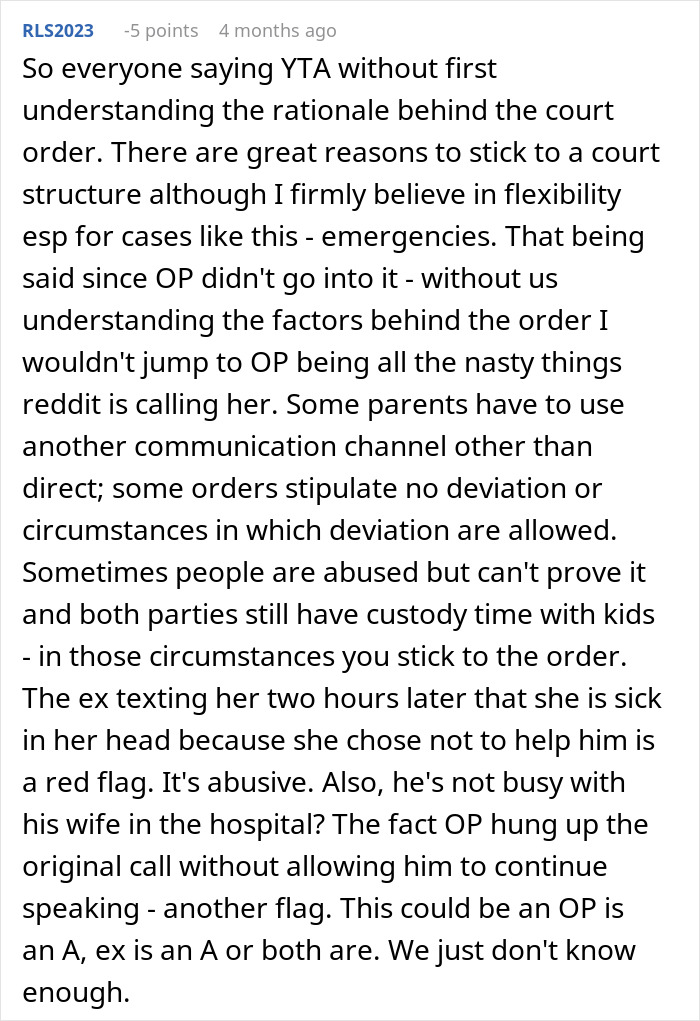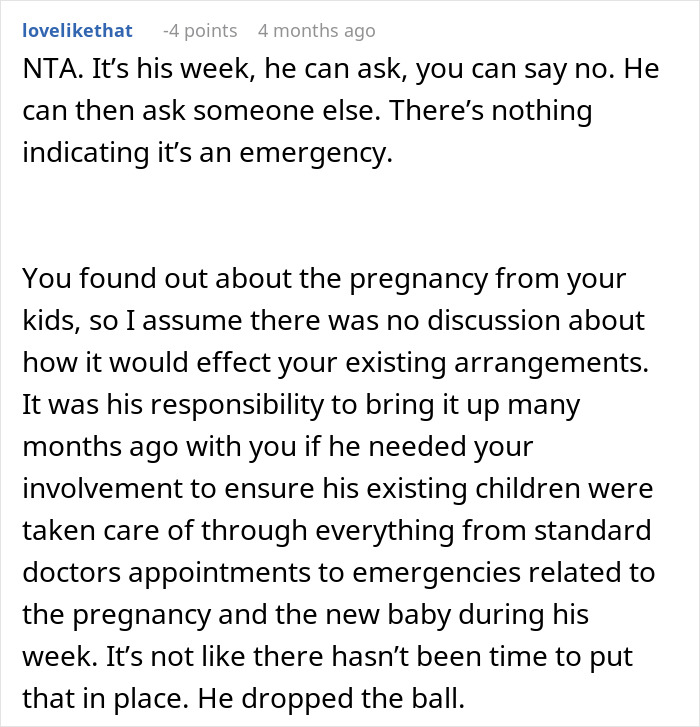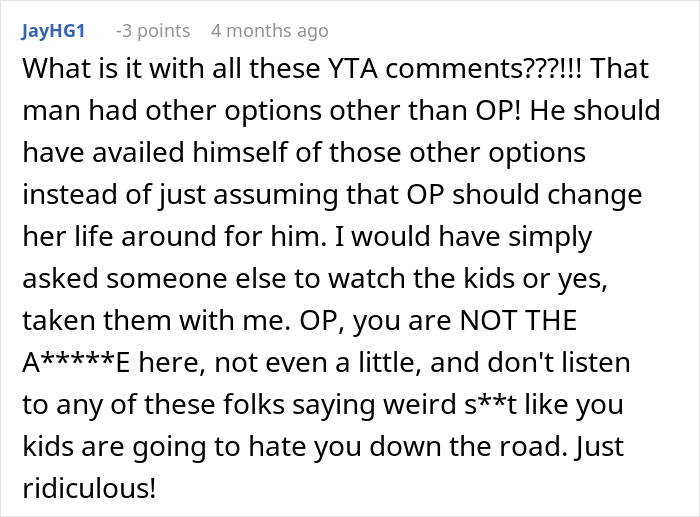Co-parenting after a divorce requires that both ex-partners put away their anger, resentment, and other messy emotions and prioritize the needs of their children.
However, as this Reddit user has just realized, setting aside such strong feelings often is much easier said than done.
In a recent post, she described a contentious situation with the father of her daughters, who requested she take the kids early so he could accompany his new wife to the hospital — and the reason behind her refusal to do so.
This woman is sharing custody of her girls with her ex-husband, and the arrangement hasn’t been without its difficulties

Image credits: RDNE Stock project / Pexels (not the actual photo)
Particularly when the man’s current pregnant wife had a medical emergency


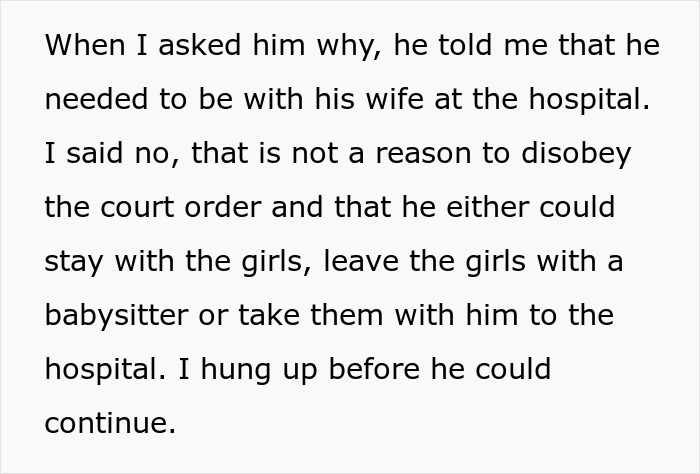

Image credits: Liza Summer / Pexels (not the actual photo)



Image credits: throwaway827262627

Image credits: cottonbro studio / Pexels (not the actual photo)
People who co-parent should look for ways to alleviate the tensions instead of increasing them
Divorce can be a critical experience for children, at times changing the trajectory of their entire lives. From their perspective, the loss of stability comes with confusion, fear, and frustration.
According to Amy Morin, who is a psychotherapist and lecturer at Northeastern University in Boston, Massachusetts:
- Young children struggle to understand why they must go between two homes. They may worry that if their parents can stop loving one another, someday they might also stop loving them.
Grade school children worry that the divorce is their fault. They might assume they did something wrong and contributed to the fallout.
Teenagers may become quite angry about a divorce and the changes it leads to. They may blame one parent for the dissolution of the marriage or resent one or both parents for the upheaval in the family.
“For some children, parental separation isn’t the hardest part. Instead, the accompanying stressors are what make divorce the most difficult,” Morin wrote. “Changing schools, moving to a new home, and living with a single parent who feels a little more frazzled are just a few of the additional stressors that make divorce difficult.”
“Financial hardships are also common following divorce. Many families have to move to smaller homes or change neighborhoods and they often have fewer material resources.”
So whatever the reason for the divorce might be, children need reassurance — they do best when they know that their parents are still going to be their parents even though the marriage has ended.
Cooperative co-parenting provides a stable, consistent, and supportive environment. Research shows that it is linked to higher self-esteem, improved academic performance, and better mental health overall in children. So if the author of the post truly cares about her daughters, she should put aside her resentment.
After all, things don’t always go according to plan, even when we have the best intentions. So keeping room for flexibility in case the other parent is late or cannot pick up the child, the babysitter doesn’t show up on time, school lets out early, or there’s another unexpected emergency is key to maintaining a positive co-parenting dynamic that, ultimately, benefits the children.
Most of the people who read her story said that the woman needs to change her attitude and show more flexibility
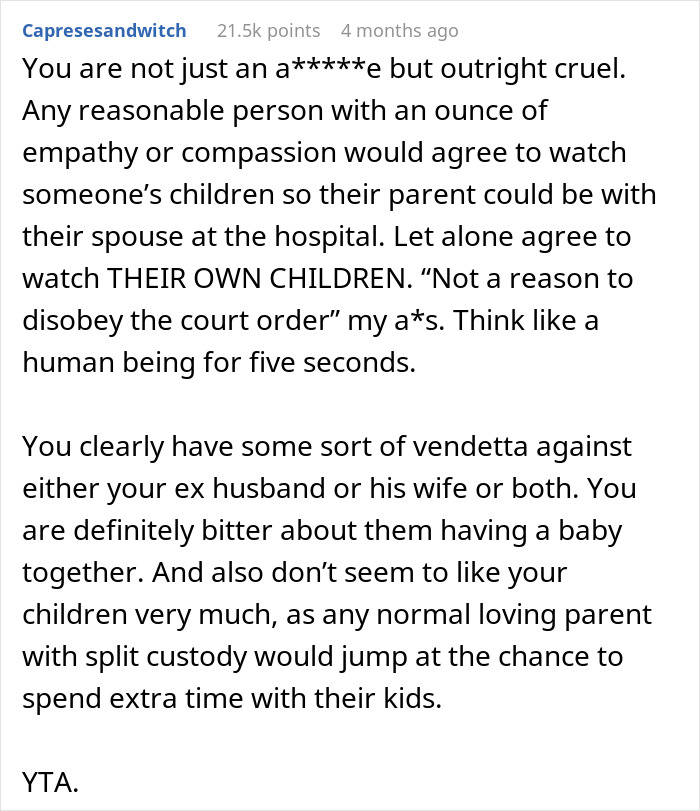

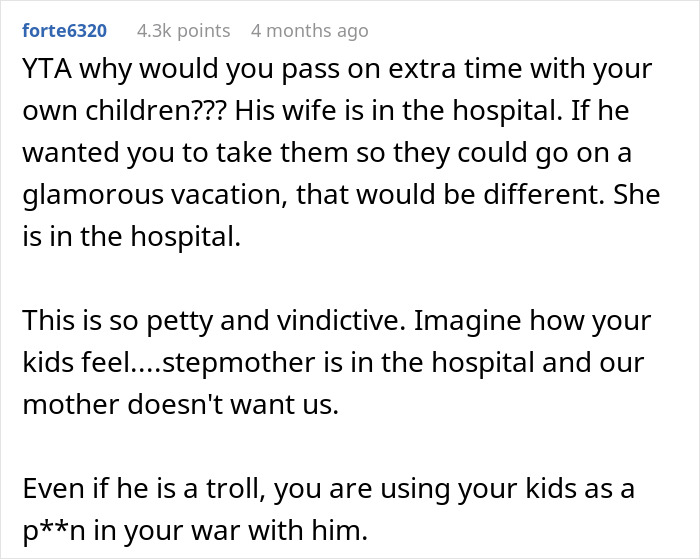
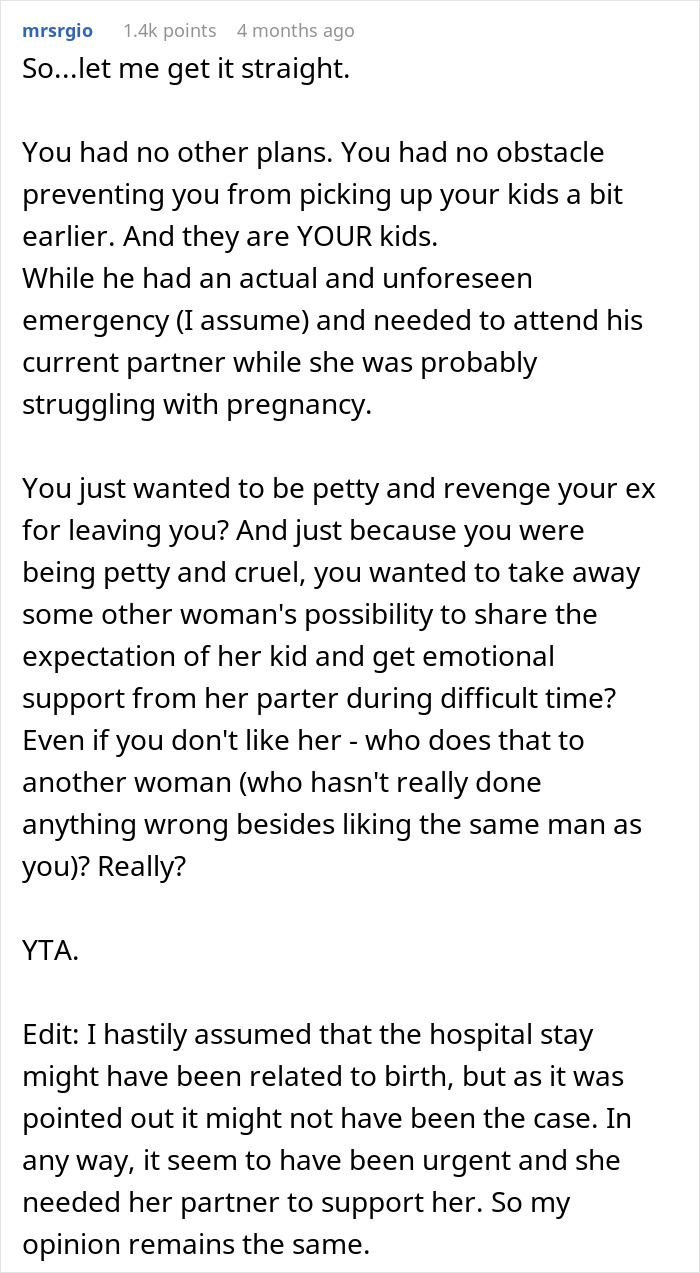

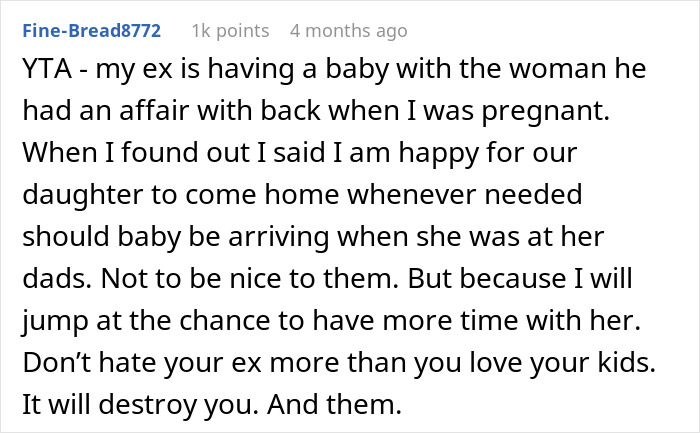
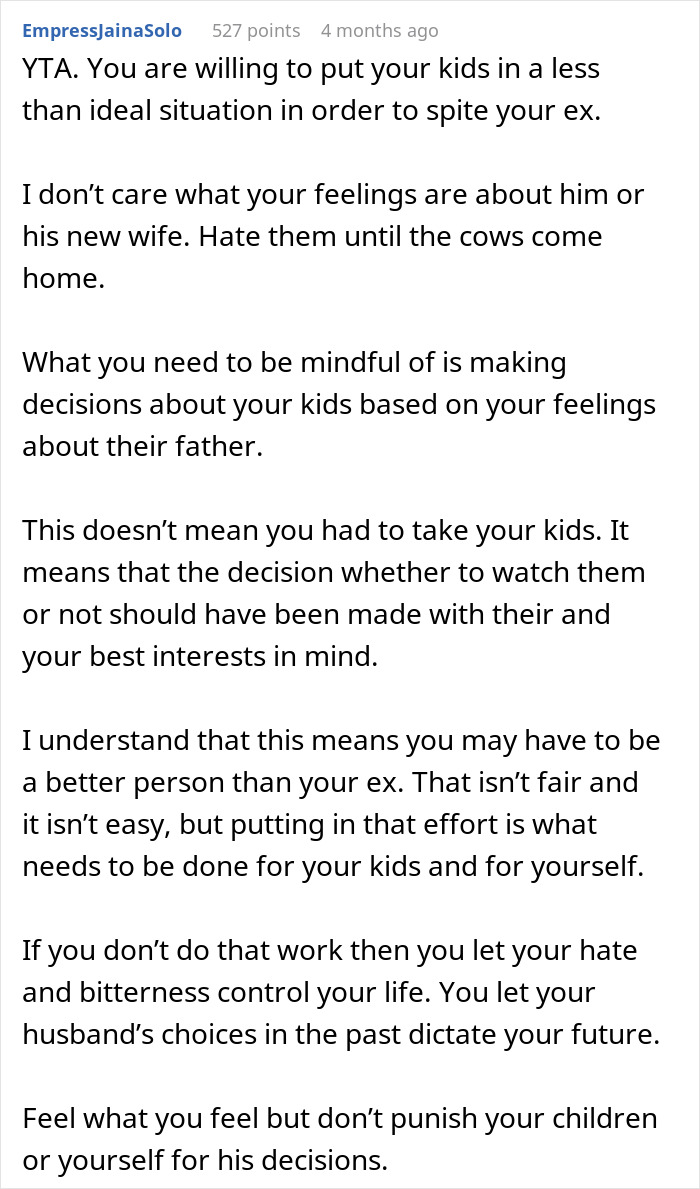
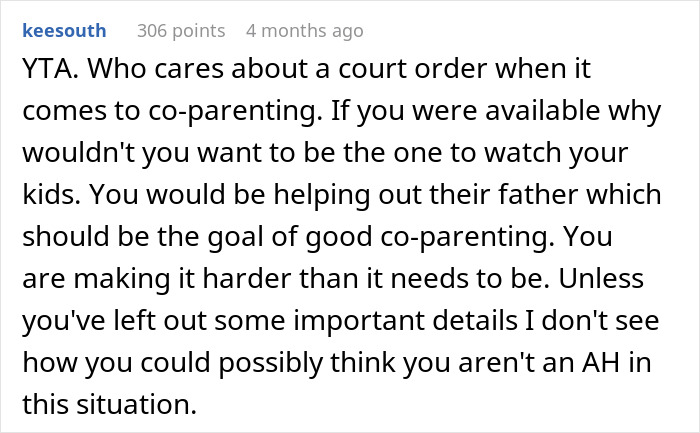

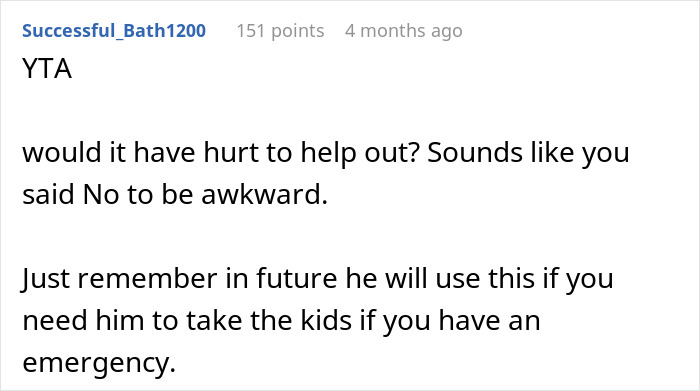


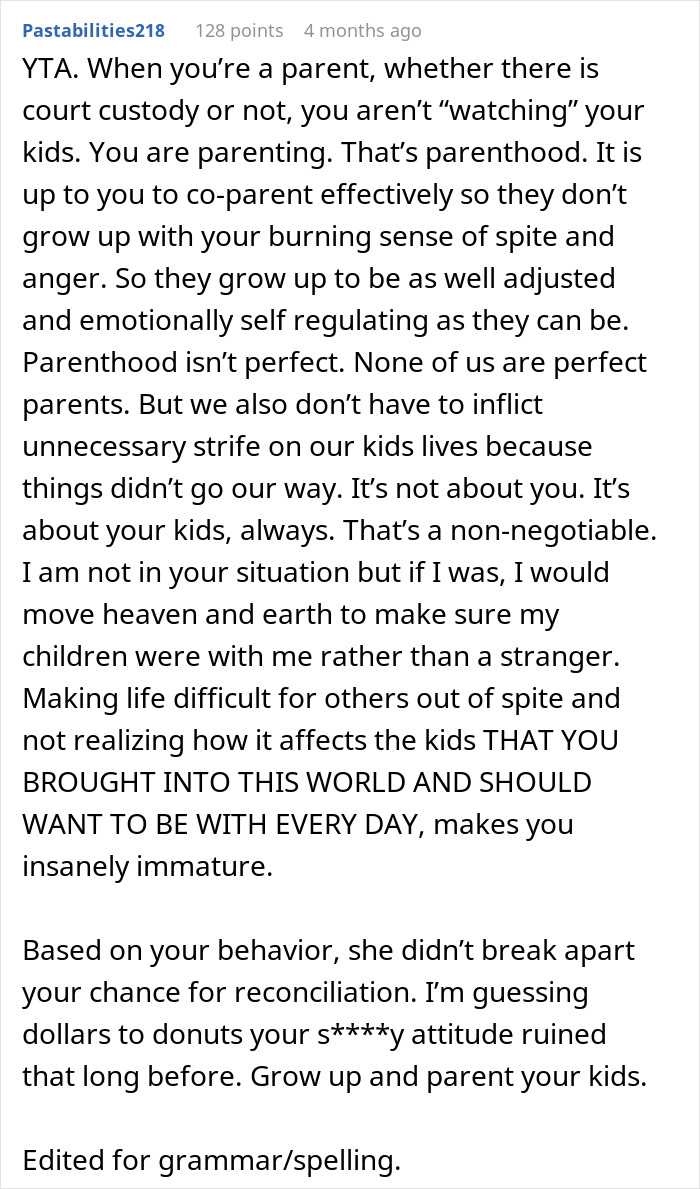

But some failed to notice any wrongdoing on her part
